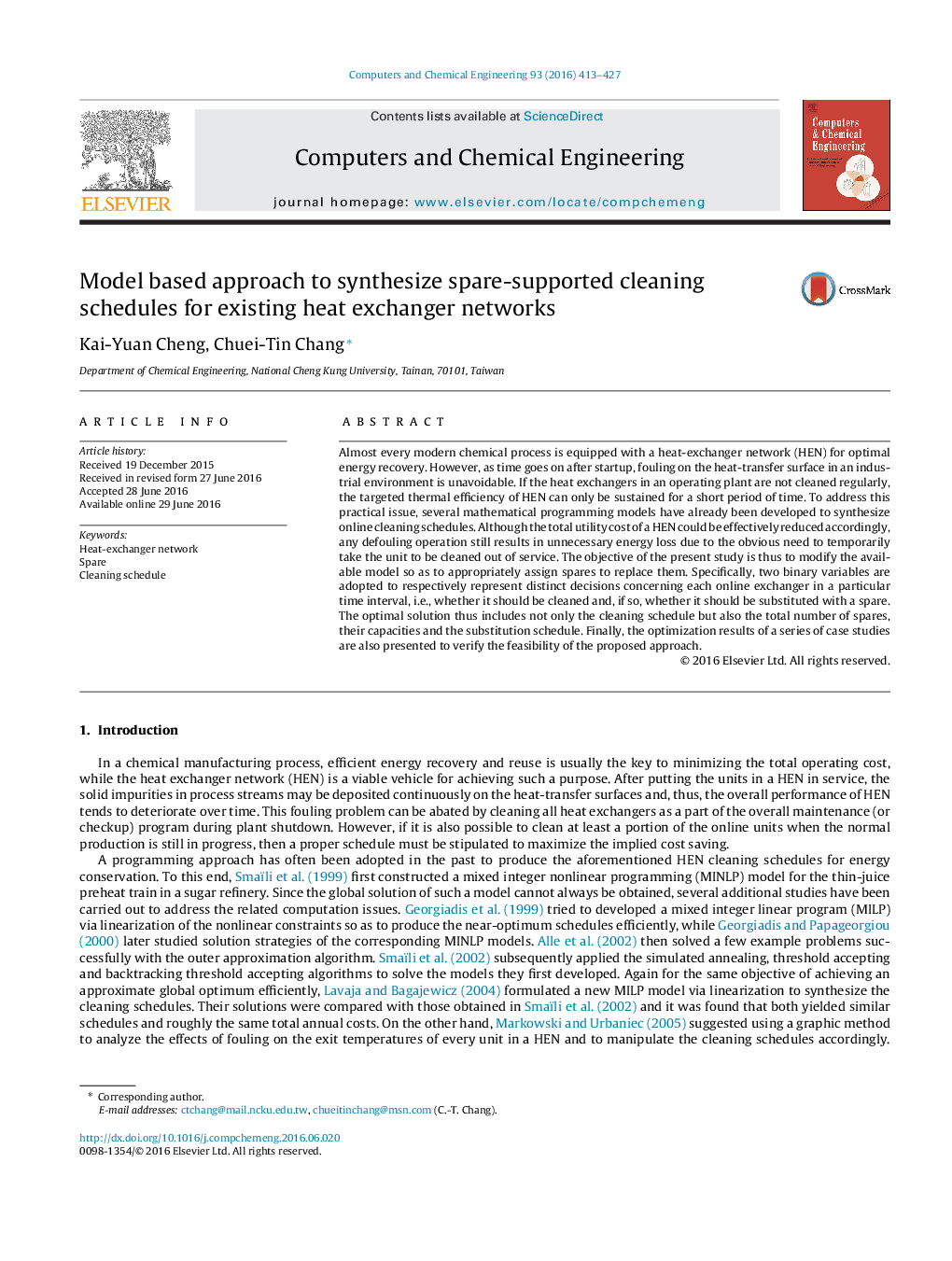| کد مقاله | کد نشریه | سال انتشار | مقاله انگلیسی | نسخه تمام متن |
|---|---|---|---|---|
| 172006 | 458512 | 2016 | 15 صفحه PDF | دانلود رایگان |
• A MINLP model is developed to synthesize cleaning and spare substitution schedule.
• Binary variables are adopted to facilitate decisions for cleaning and spare replacement.
• The optimal size of each spare can be determined.
• The operation strategies are especially effective when the short-term fouling rate is relatively large.
Almost every modern chemical process is equipped with a heat-exchanger network (HEN) for optimal energy recovery. However, as time goes on after startup, fouling on the heat-transfer surface in an industrial environment is unavoidable. If the heat exchangers in an operating plant are not cleaned regularly, the targeted thermal efficiency of HEN can only be sustained for a short period of time. To address this practical issue, several mathematical programming models have already been developed to synthesize online cleaning schedules. Although the total utility cost of a HEN could be effectively reduced accordingly, any defouling operation still results in unnecessary energy loss due to the obvious need to temporarily take the unit to be cleaned out of service. The objective of the present study is thus to modify the available model so as to appropriately assign spares to replace them. Specifically, two binary variables are adopted to respectively represent distinct decisions concerning each online exchanger in a particular time interval, i.e., whether it should be cleaned and, if so, whether it should be substituted with a spare. The optimal solution thus includes not only the cleaning schedule but also the total number of spares, their capacities and the substitution schedule. Finally, the optimization results of a series of case studies are also presented to verify the feasibility of the proposed approach.
Journal: Computers & Chemical Engineering - Volume 93, 4 October 2016, Pages 413–427
